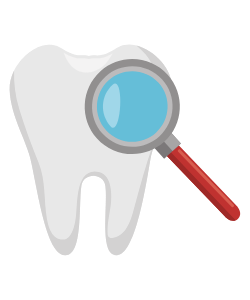Dentists will typically leave some room in their schedule to see patients who are deemed to be dealing with a dental emergency. If you find yourself in that situation you may be wondering what an emergency dental appointment will be like and you may have some anxiety about what may take place at the appointment. Planned appointments and elective treatment come with the reassurance of knowing what to expect, but there are some general principles that will be followed during any emergency appointment and being aware of them can help you feel more reassured.
Defining A Dental Emergency
A dental problem is generally considered to be an emergency if there is damage to a tooth, there is a risk of infection or there is an established infection. If you break your tooth or your tooth gets knocked out, you should see an emergency dentist. A broken tooth can damage the soft tissue lining of your mouth and allow a bacterial infection to develop in the soft pulp of the tooth, and a tooth that's been knocked out can sometimes be saved if you see a dentist quickly after the incident. If you have an abscessed tooth, which is characterised by a pocket of pus forming around the tooth, you need dental treatment right away. An abscess that's not treated promptly can lead to tooth loss, and the infection can spread into your jaw and lymph nodes.
The Emergency Appointment
When you call your dentist for an emergency appointment you should expect to give as much detail as possible over the phone to allow your dentist to establish whether you need an emergency appointment. Your appointment will begin with a full dental examination, and you may require dental X-rays to allow the dentist to fully understand the scope of the problem you are experiencing. Your dentist will then discuss a treatment plan with you. It may be that the treatment you receive that day will be a temporary solution. For example, they may provide pain relief, anti-inflammatories or antibiotics, but you may need a further appointment for treatment to properly resolve the issue. Your dentist will arrange for any additional appointments to take place as quickly as possible.
Follow-Up Care
If you see a dentist who is not your usual dentist, ask them who will carry out any follow-up care you require. They may see your treatment through to the end, or they may refer you back to your regular dentist for any follow-up care you require. Establish this from the start to prevent any oversight in your care further down the line.
If you have damaged your tooth, are experiencing severe dental pain or think you have a dental abscess, arrange an emergency dental appointment right away.
Contact an emergency dentist to learn more.
Share
